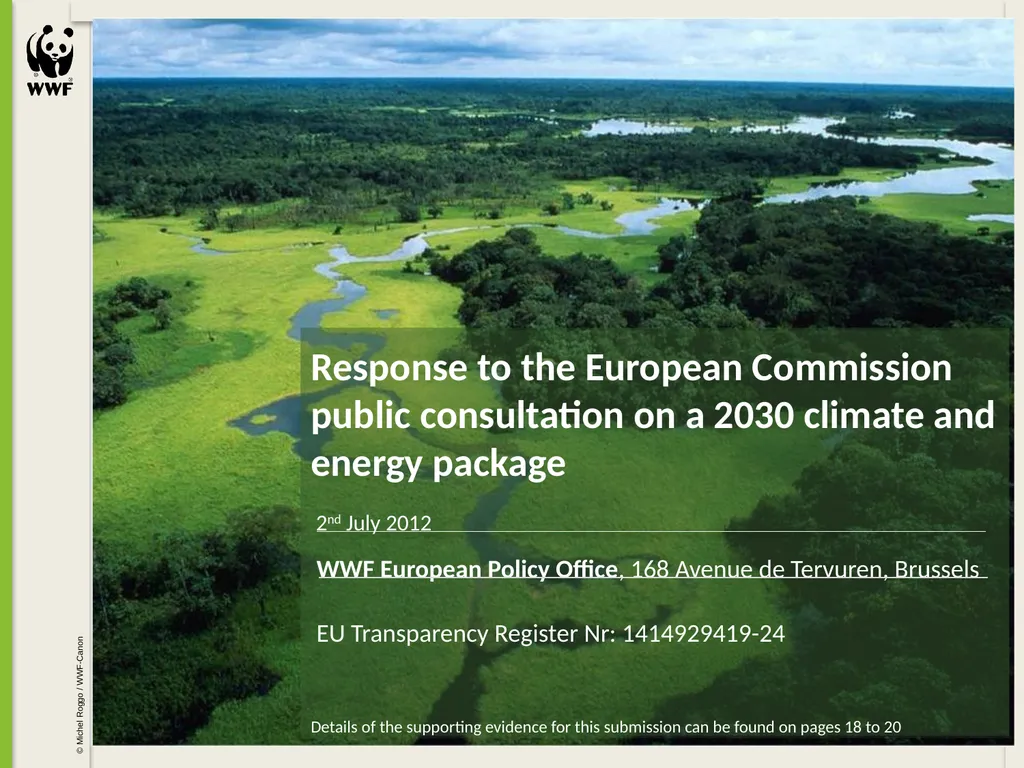
Author : tatyana-admore | Published Date : 2025-11-08
Description: Michel Roggo WWF-Canon Response to the European Commission public consultation on a 2030 climate and energy package 2nd July 2012 WWF European Policy Office, 168 Avenue de Tervuren, Brussels EU Transparency Register Nr: 1414929419-24Download Presentation The PPT/PDF document "" is the property of its rightful owner. Permission is granted to download and print the materials on this website for personal, non-commercial use only, and to display it on your personal computer provided you do not modify the materials and that you retain all copyright notices contained in the materials. By downloading content from our website, you accept the terms of this agreement.
Here is the link to download the presentation.
"© Michel Roggo / WWF-Canon Response to the"The content belongs to its owner. You may download and print it for personal use, without modification, and keep all copyright notices. By downloading, you agree to these terms.













